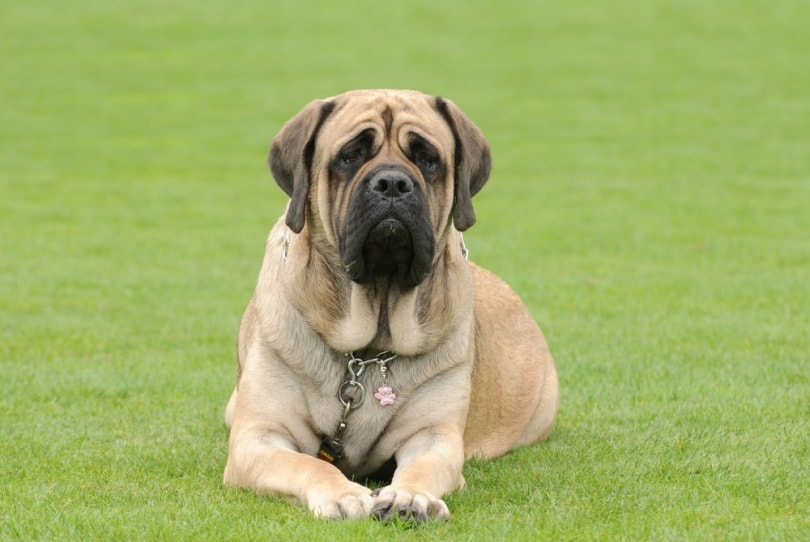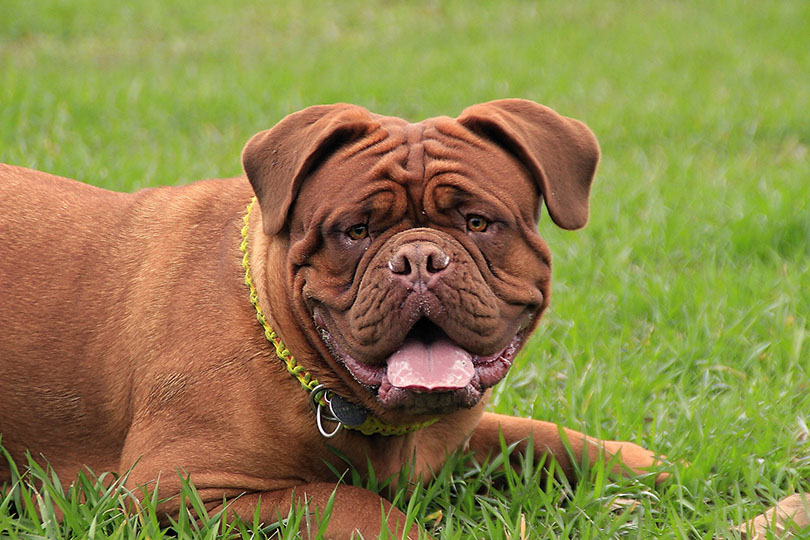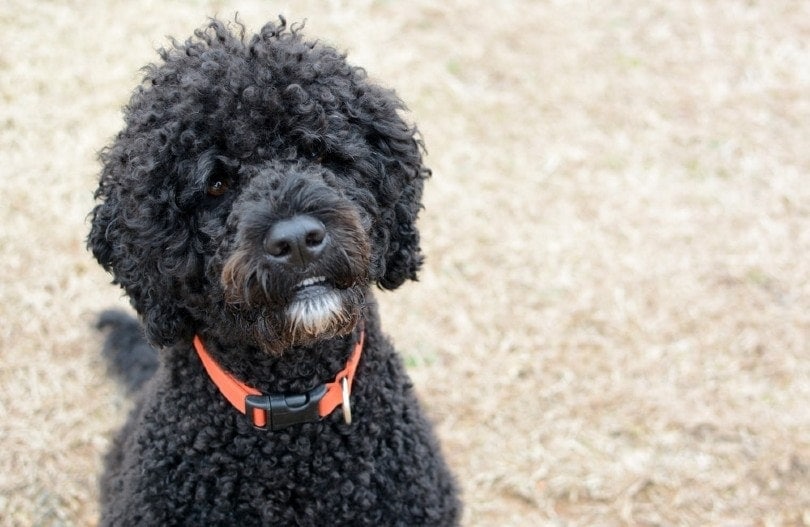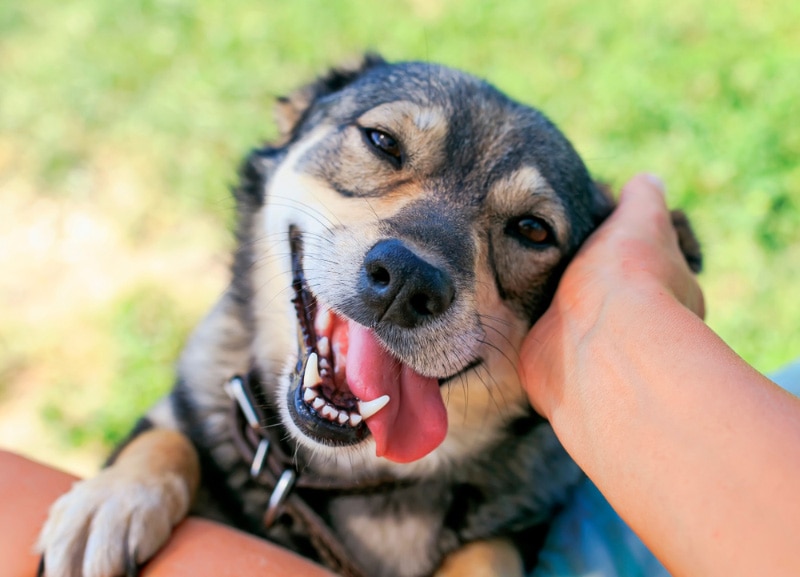Are Mastiffs Good for First-Time Owners? Read Before You Get One

Updated on

Click to Skip Ahead
Many ask if the Mastiff breed is a good choice for first-time dog owners. Some people would say yes, and yet others say no. Mastiffs are large, gentle dogs that are great for families. They are also known for being loyal and protective of their owners.
However, Mastiffs can be difficult to train and may not necessarily be the best choice for first-time dog owners. The Mastiff is a difficult breed for a first-time owner due to their size, potentially stubborn nature, and need for consistent training. Being aware of the challenges of raising a Mastiff can help to decide if this is the right breed for you.
Size Is a Consideration
Mastiffs typically weigh between 100 and 200 pounds, making them one of the largest dog breeds. With large dogs like a Mastiff, size does need to be a consideration. These large dogs are often misunderstood because of their size, but they are actually some of the most loving and loyal dogs around. Despite their size, Mastiffs are affable creatures that make great family pets. However, some challenges come along with owning a large dog:
- A male Mastiff will be anywhere between 160–230 pounds, and a female between 120–170 pounds. Their average height is between 27–30 inches. These dogs need plenty of space to run and play, so if you live in a small home or apartment, a Mastiff may not be the right pet for you.
- Another challenge is finding a veterinarian that is comfortable handling such a large animal. Not all vets have experience with giant breeds, so you may need to do some research to find one that does.
- Finally, large dogs can be more expensive to care for than small dogs. Their food and medical bills tend to be higher due to their size.
But despite the challenges, owning a big furry friend is often worth it!

General Temperament
Although Mastiffs are loyal and protective of their family, they are not aggressive by nature. They can be suspicious of strangers and may bark to let you know someone is there, but they are not naturally hostile.
They respond best to consistent training methods and do not respond well to harsh punishment or abrupt changes in their environment and routine. They need a stable environment and are best suited to families who do not move often.
Because of their size and strength, it is important to socialize them from an early age, so they learn how to interact politely with other dogs and people. Mastiffs are loyal and protective of their family but can be suspicious of strangers.
Training a Mastiff: What You Need to Know
When it comes to training a Mastiff, consistency and commitment are key. You need to be consistent with your commands and expectations, and you need to be committed to teaching your dog the proper way to behave. They can be quite a handful when they are puppies.
- Start with basic obedience commands like sit, stay, come, and down. Make sure you are consistent with your commands and rewards, and be patient while your dog learns. Mastiffs need strong leadership, or they can be willful and stubborn.
- Teach your dog how to walk on a leash without pulling. This will require patience and practice, but it is important for keeping your dog safe on walks. This is especially important for such a large dog, as it can be dangerous to walk a poorly trained Mastiff if they chase or pull.
- Work on teaching your dog not to jump up on people. This is a common behavior for Mastiffs, but it can be dangerous if they knock someone over or accidentally scratch them.

Exercise Needs of a Mastiff
While all dogs need some form of exercise, the specific needs of each breed can vary considerably. For example, a Mastiff will require more exercise than a toy poodle. However, both breeds will need more exercise than a sedentary human.
Mastiffs require at least 30 minutes of exercise per day. This can be in the form of a walk, run, or playtime in the yard or park. They also enjoy playing fetch or tug-of-war with their human companions. It is important to make sure that your Mastiff gets enough exercise to prevent them from becoming bored or destructive.
The 3 Potential Health Concerns for Mastiffs
Multiple health concerns commonly occur in Mastiffs as well as other large breed dogs. Here are the primary ones to be aware of:
1. Hip Dysplasia
One of the most common problems seen in Mastiffs is hip dysplasia. This is a condition where the hip joint does not develop properly, leading to pain and lameness. It can be a very serious problem if not treated correctly. It is a congenital condition, which means it is present from birth. The condition can be mild or severe, depending on the severity of the deformity. In some cases, it may only cause mild discomfort, while in others, it can lead to crippling lameness.
2. Bloat
Another potential health concern for Mastiffs is bloat. This is a condition where the stomach twists on itself, cutting off blood flow and causing severe pain. This occurs in dogs with narrow but deep chests and is a difficulty with that build. It can be fatal if not treated immediately. Several things can cause bloat, including eating too fast, drinking water too quickly, and exercising immediately after eating.
3. Heart Conditions
Mastiffs can also be prone to some heart conditions. Mastiff breeds are at an increased risk for developing pulmonic stenosis, which is a blockage of the blood flow from the heart to the lungs. This can lead to complications and even heart failure. Heart conditions are often hereditary in Mastiffs, so it is important to have your dog checked by a veterinarian if you think he may be at risk.

Conclusion
In conclusion, owning a Mastiff has its pros and cons. They can be a bit stubborn, especially as puppies before they have been well-trained. Their large size can be a challenge as well because they occupy a lot of space and need plenty of room to move around. They can face some of the health issues and costs that are quite common to large breed dogs.
They are also sweet, loyal, and attentive and love being in a family. If you are considering owning a Mastiff, do your research and be prepared for some challenges. But in the end, you will have a loyal friend for life.
- Related Read: Can a Mastiff Be a Service Dog?
Featured Image Credit: Waldemar Dabrowski, Shutterstock










